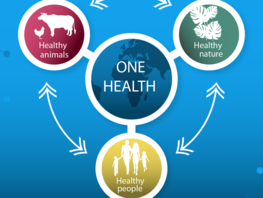The next board meeting was held at the Ministry of Health of Kyrgyzstan, dedicated to the state and development prospects of the country’s oncology service.
The key issue of the event was strengthening the oncology care system, increasing its accessibility, quality and efficiency.
According to the press center of the ministry, the meeting was attended by representatives of the Presidential Administration, members of the board, experts, heads of healthcare organizations, representatives of the National Center of Oncology and Hematology and patients.
According to the head of the department for the organization of medical care and drug policy Nurgul Ibraeva, in 2024, about 6,651 new cases of malignant neoplasms were registered in Kyrgyzstan, which is 8.9 percent higher than in the previous year.
More than 40 percent of patients are admitted to healthcare institutions at late stages, and the one-year mortality rate in some regions exceeds 40 percent. The five-year survival rate in the republic is only 34.2 percent.
During the discussion, the following key systemic problems were mentioned:
- Outdated regulatory framework;
- Inefficient use of hospital beds and equipment;
- Non-transparency of drug provision;
- Low implementation of digital solutions for accounting and routing;
- Weak preventive work;
- Lack of oncology alertness among primary care physicians.
Health Minister Erkin Checheybaev emphasized the need for an urgent and profound rethinking and reform of the oncology service. «Oncology care cannot be hostage to outdated approaches. We must create a system, in which every patient will receive timely, high-quality and affordable care,» he said.
The following development areas were proposed during the discussions:
- Working out a strategy for development of the oncology service for 2026-2030 with clear performance indicators;
- Revision of the regulatory framework, including the legalization of international clinical protocols;
- Implementation of digital solutions in the activities of the oncology service;
- Strengthening human resources, including training specialists on a budget-funded basis;
- Increasing cancer awareness and prevention at the clinic level;
- Introduction of telemedicine consultations and expansion of palliative care;
- Audit and optimization of drug purchases based on evidence-based medicine and treatment protocols.
The official instructed to intensify the work of interdepartmental and expert working groups as soon as possible, ensure control over the implementation of decisions taken and form a transparent system for monitoring of treatment results.






